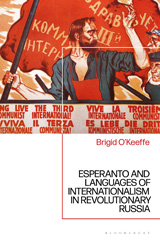2021 - Bloomsbury Publishing
E-book
Versione Digitale
Lettura Online | NO Download | NO Copia/incolla | NO Stampa
Esperanto and Languages of Internationalism in Revolutionary Russia
266 p.
- Hoping to unite all of humankind and revolutionize the world, Ludwik Zamenhof launched a new international language called Esperanto from late imperial Russia in 1887. Ordinary men and women in Russia and all over the world soon transformed Esperanto into a global movement. Esperanto and Languages of Internationalism in Revolutionary Russia traces the history and legacy of this effort: from Esperanto's roots in the social turmoil of the pre-revolutionary Pale of Settlement; to its links to socialist internationalism and Comintern bids for world revolution; and, finally, to the demise of the Soviet Esperanto movement in the increasingly xenophobic Stalinist 1930s. In doing so, this book reveals how Esperanto - and global language politics more broadly - shaped revolutionary and early Soviet Russia. Based on extensive archival materials, Brigid O'Keeffe's book provides the first in-depth exploration of Esperanto at grassroots level and sheds new light on a hitherto overlooked area of Russian history. As such, E
- speranto and Languages of Internationalism in Revolutionary Russia will be of immense value to both historians of modern Russia and scholars of internationalism, transnational networks, and sociolinguistics. [Publisher's text].
- Special access authorizations may apply; please contact us for further information.
-
Informazioni
ISBN: 9781350160668
MATERIE


